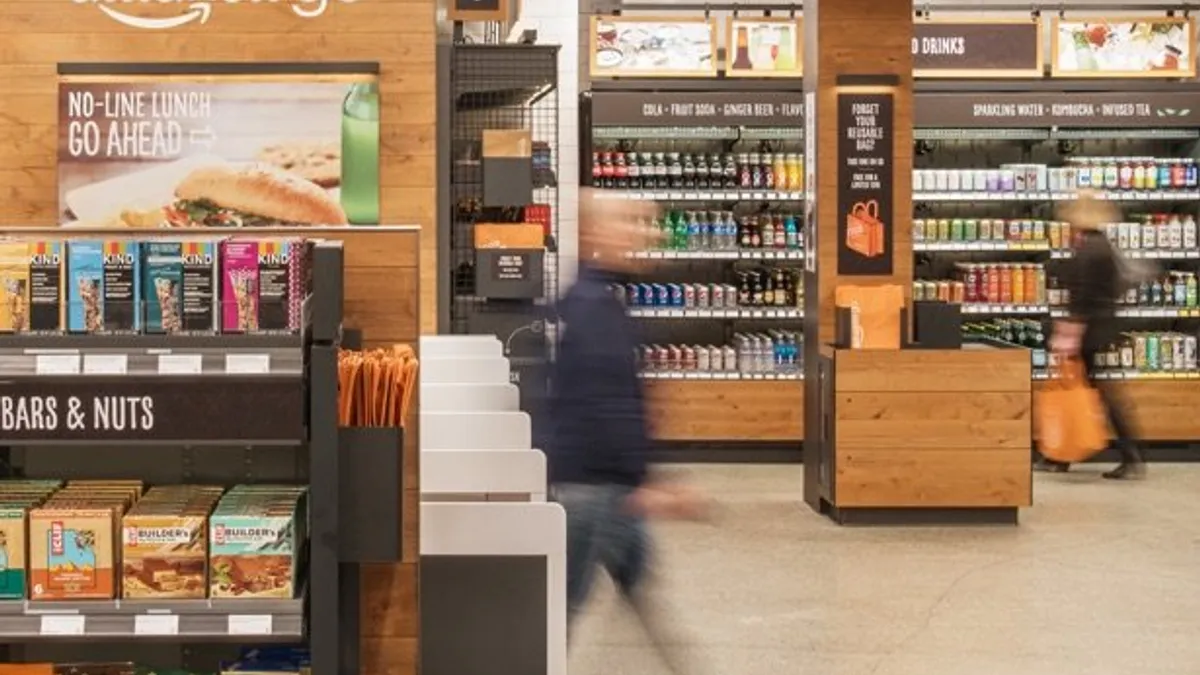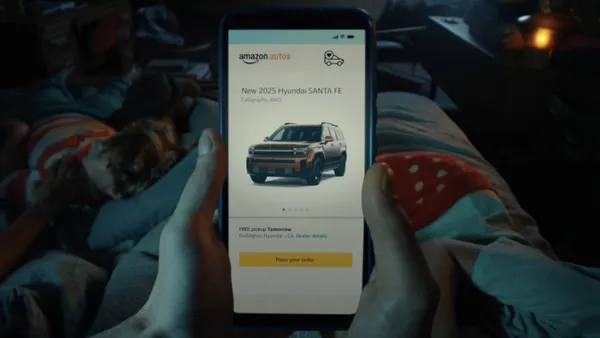Dive Brief:
- With the expansion of its cashierless stores, Amazon is "deploying a business model that poses an existential threat to millions of American jobs," Marc Perrone, president of the United Food and Commercial Workers International Union, said in a statement last week.
- "Make no mistake, creating cashierless stores is not about convenience; rather, it is about greed," he wrote on the union's blog.
- Bloomberg first reported, last week, that Amazon is mulling as many as 3,000 new Amazon Go cashierless stores in the next few years, citing "people familiar with the matter." Amazon didn't immediately respond to Retail Dive's request for comment.
Dive Insight:
Retailers are enjoying the fruits of a robust economy and high levels of consumer confidence, thanks in part to low unemployment and rising wages.
Wages (or, from the retailer's point of view, labor costs) have risen in many areas thanks to competition for workers as well as to new local and state minimum wage laws, although more broadly a wage gap between higher and lower-income consumers persists in the U.S. Along with breathing room provided by last year's tax cuts, that rise is contributing to the recent robustness of recent earnings reports, according to Retail Metrics President Ken Perkins.
"There is no question corporate tax cuts have provided a meaningful lift, but low unemployment, a strong jobs market, elevated consumer confidence and modest wage gains are also significant contributors," he wrote in comments emailed to Retail Dive. "In other words, retailers should be generating solid profit growth in this environment. Home Depot, Macy's, Tapestry, and Walmart all turned in solid results with positive outlooks."
Perrone released his bold statement as some economists are taking into account the importance of unions in helping protect the American middle class in previous decades. "The decline of labor unions in the United States has been central to the rise of wage inequality since the early 1970s," Tom VanHeuvelen, a sociology professor at the University of Illinois at Urbana-Champaign, wrote in the journal Social Forces.
Initially, as a pilot first launched in 2016 to Amazon's own Seattle workers only, the Amazon Go experiment seemed to run into a series of glitches, but Amazon's formidable tech teams have apparently ironed a lot of that out. By the new year, Amazon had opened that location to the public, and since has two more in Seattle and one in Chicago, with plans for more in Chicago, San Francisco and New York.
If cashierless stores catch on — and they already are, really, considering how many retailers already employ self-checkout kiosks — that represents the loss of millions of jobs, Perrone warned. "[I]t is time we are honest about the devastating impact this will have on our nation and tens of millions of hard-working families," he wrote.















